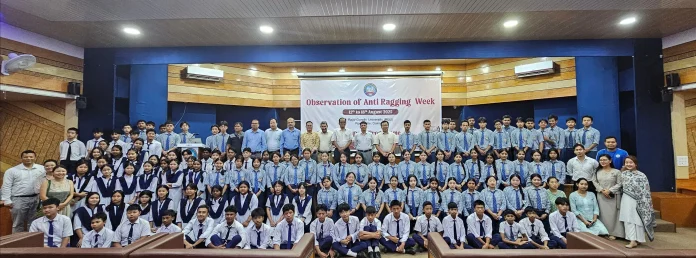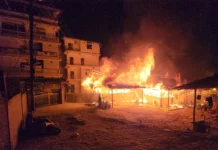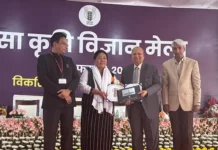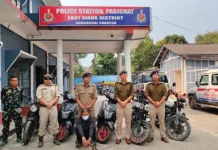RONO HILLS, 12 Aug: The Anti-Ragging Committee of Rajiv Gandhi University (RGU) is observing the Anti-Ragging Week from 12 to 18 August as part of its commitment to maintaining a safe, inclusive, and respectful learning environment.
The objective of the programme is to sensitize students to the dangers of ragging, the legal implications, and the role of the university community in preventing such acts.
Addressing the inaugural session, RGU Registrar Dr NT Rikam informed the audience about the Government of India’s anti-ragging portal, and announced the observation of Anti-Ragging Week from 12 to 18 August across all universities. He said that, while ragging hasn’t been seen much in higher education in Arunachal Pradesh, it remains a serious social issue.
He warned that “one might perpetrate ragging indirectly if awareness is not spread about it,” and urged all to join the anti-ragging movement. A short awareness video created by the RGU was also screened.
ICR DIGP Tumme Amo delivered a special lecture on “the aspects of anti-ragging, its policies and implementation,” the RGU informed in a release.
Amo said that, “while several states have enacted anti-ragging laws, Arunachal is yet to introduce such a law,” and suggested that such laws could be adopted from other states.
He said that ragging could be physical, psychological, verbal, sexual, or even occur through social media. He mentioned that “Arunachal has begun witnessing grave ragging incidents in boarding schools lately.”
The DIGP highlighted how under legal provisions such as Section 75, even minors accused of ragging could be imprisoned. One of his strongest warnings was: “If someone gets involved in ragging, a criminal record will follow them for life. Even if they clear the IAS, they might not get the job.”
The DIGP outlined the penalties under the Indian Penal Code and BNS provisions that apply to ragging, including Sections 341, 126, and 127, and warned against criminal intimidation and unlawful confinement.
He advised students to support juniors emotionally and physically. “School and college life should be remembered for friendships and lifelong memories. Let it be defined by kindness, not cruelty,” Amo said.
The session concluded with a Q&A segment, where Amo responded to students’ queries and clarified legal and social doubts on ragging culture and POCSO Act.
RGU Vice-Chancellor (i/c) Prof SK Nayak said, “I believe every person who indulges in ragging, regardless of being senior or junior, should face the same consequences.” He emphasized that “our university strictly follows anti-ragging rules and has various committees to ensure a ragging-free campus.”
RGU Anti-Ragging Committee chairman Prof Ashan Riddi also spoke.
The event was attended by faculty members of RGU, research scholars of RGU and students of Rajiv Gandhi University Secondary School and Good Shepherd School, besides the members of RGU’s Anti-Ragging Committee.





